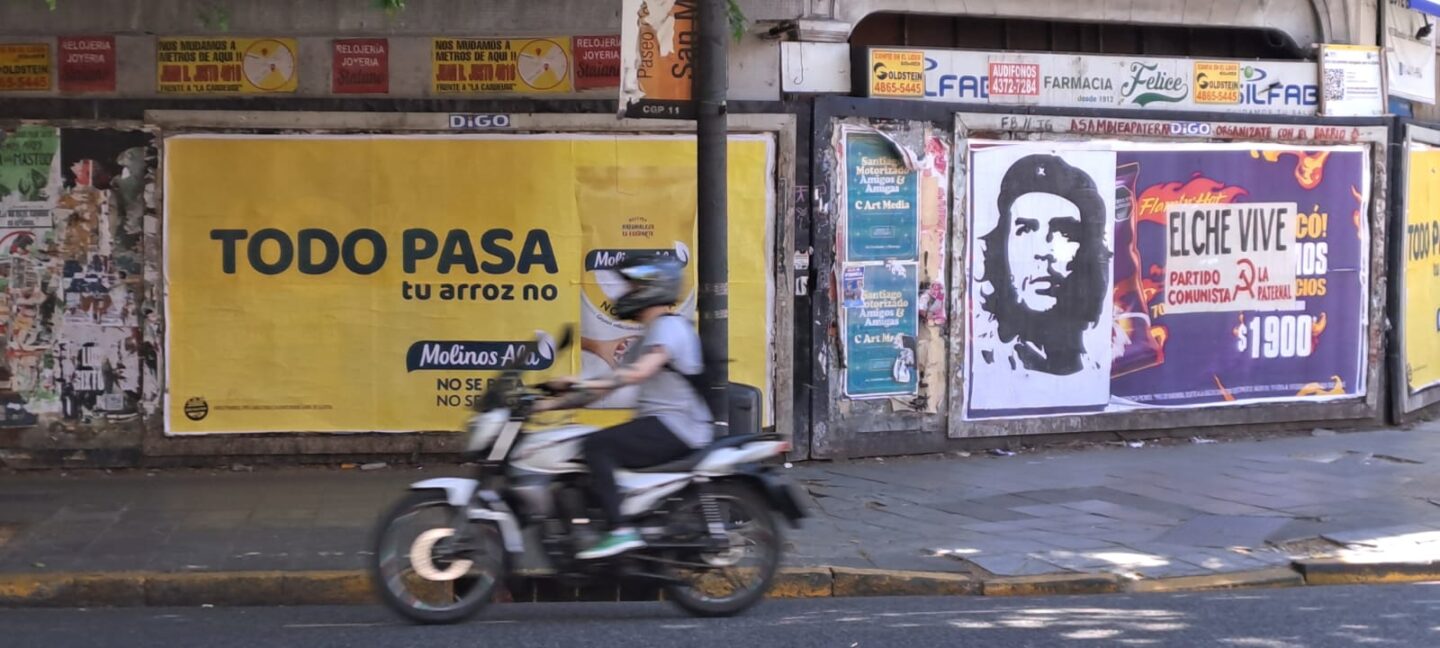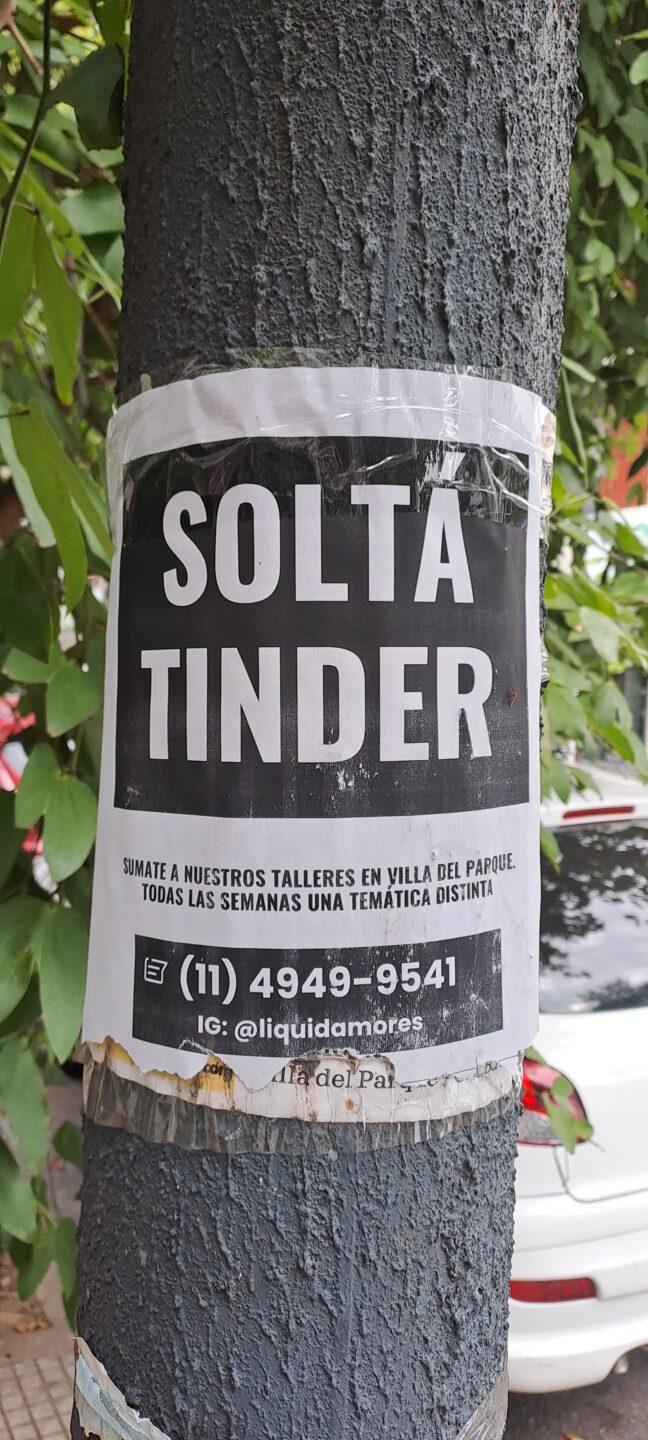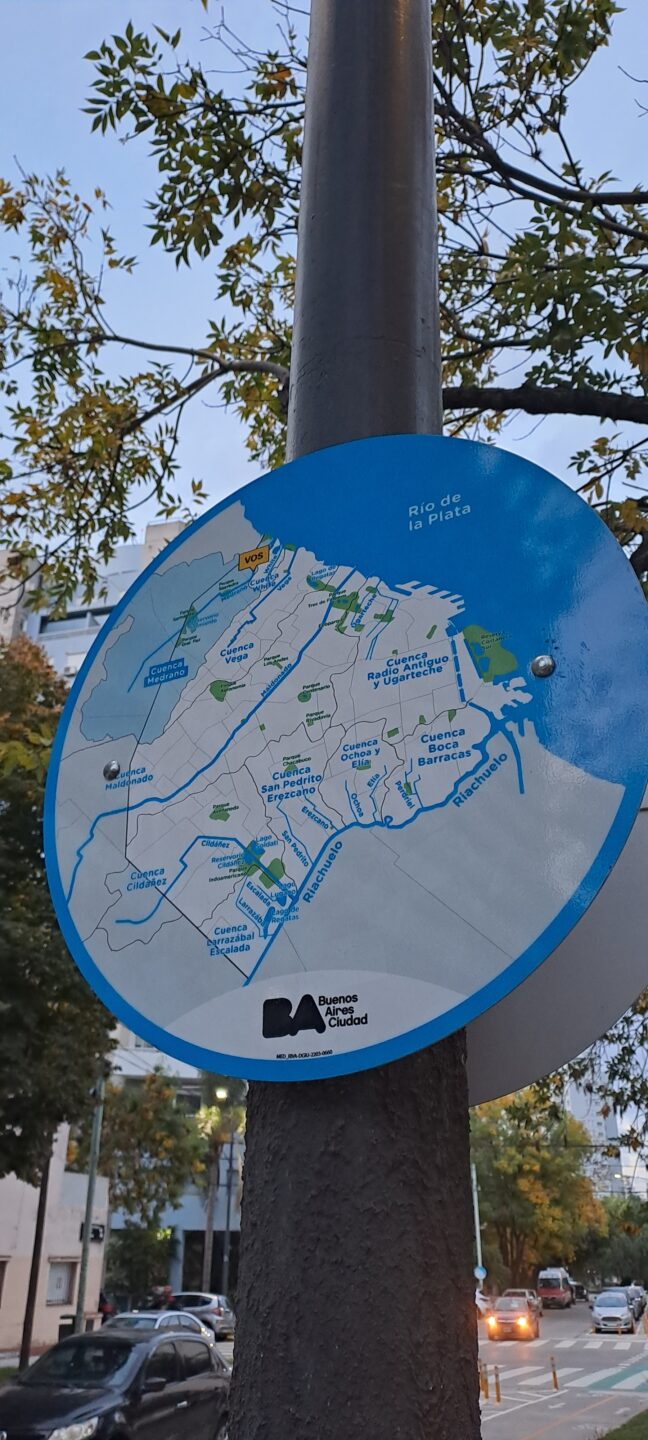Marketing Photo Op (Marketing)
Todo pasa

The PHOTO OP series — to which SEMIOVOX has invited our semiotician colleagues from around the world to contribute — analyzes photos that we’ve snapped while “off the job.”

Stuck on an electricity pole in a neighbourhood in Buenos Aires, an advertisement invites people to attend workshops on healthy emotional relationships in times of liquid modernity. In capital letters on a black background, the poster is imperative: ‘Soltá Tinder’ (Quit Tinder). It is not about giving up, leaving or abandoning; the order is to drop. Leave hands free, minds open, and take some time to chat about how we interact with each other.

A corner of Buenos Aires where chance has brought mass advertising into collision with handmade political posters.
Guerrilla advertising? Maybe.
A rice brand promises that it doesn’t over cook (“no se pasa”), while the few remaining members of the local Communist Party have put up a poster in memory of their leader.
“Everything passes” (your rice doesn’t) > “Che is alive”
This syntagm reveals at least two thought-provoking messages.
Here we can read: Everything passes, except Che; and also: Everything passes, even Che.
Whether the word is “except” or “even” will depend on what readers bring to their interpretation based on their cultural codes and political beliefs.
Also, how can we not marvel at the polysemy of the Spanish verb ‘pasar’? It means: to happen, to pass by, to go to, to go beyond a certain state, like rice that is usually overcooked.
Time passes, as the rice does.

Buenos Aires could be a city with three streams, but it isn’t. Years of poorly planned urban growth and prevailing engineering paradigms led to the streams on the patch of pampa on which Argentina’s capital stands being piped underground.
However, a few years ago, driven by environmental concerns, the local government installed signs and information panels in the areas of the city where these streams flow. It is the nature we do not see. The nature we have buried under the city.
It is also the possibility of imagining what the city would be like if, instead of an avenue, there were a stream there.
PHOTO OP: Mariane Cara (Brazil) on LA LUCHA CONTINUA | Aiyana Gunjan (India) on YAMRAJ | Greg Rowland (England) on I ❤️ FOOD | Gabriela Pedranti (Spain) on NOT SO TRIVIAL | Biba Allarakia (Saudi Arabia) on ALL THAT GLITTERS | Brian Khumalo (South Africa) on A LOST MEMORY | Becks Collins (England) on A MILLENNIAL ON THE BRINK | Samuel Grange (France) on SLOW DOWN | Rachel Lawes (England) on DESKTOP COLLECTIONS | Marie Lena Tupot (USA) on BOX OFFICE | Sónia Marques (Portugal) on SWISS-NESS | Serdar Paktin (Turkey / England) on BOTTLE SERVICE | Stefania Gogna (Italy) on OPEN-AIR MUSEUM | Charles Leech (Canada) on IS IT IRONIC? | Kishore Budha (England) on DOWN THE TUBE | Josh Glenn (USA) on JOINED AT THE DIP | Mark Lemon (England) on SHOP LOCAL | William Liu (China) on SWAN SONG | Malcolm Evans (Wales) on CHOCOCRACK | Paulina Goch-Kenawy (Poland) on POLAND’S NEW (HI)STORY | Adelina Vaca (Mexico) on WHAT’S YOUR POISON? | Natasha Delliston (England) on NATURE BATHING | Ramona Lyons (USA) on DEATH TO TECH | Ximena Tobi (Argentina) on TODO PASA | Victoria Gerstman (Scotland) on UGLY-CUTE ENTROPY.
Also see these global semio series: MAKING SENSE (Q&As) | SEMIOFEST SESSIONS (monthly mini-conferences) | COVID CODES | SEMIO OBJECTS | COLOR CODEX | DECODER (fictional semioticians) | CASE FILE | PHOTO OP | MEDIA DIET.

